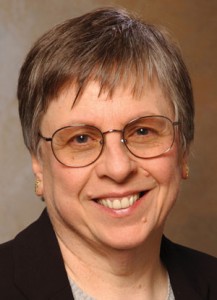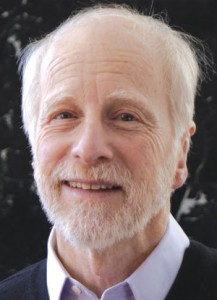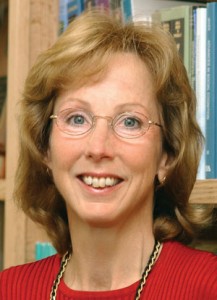Reflecting on a Lifetime of Achievement
As part of APS’s 25th Anniversary celebration, the Board of Directors is honoring 25 distinguished scientists who have had a profound impact on the field of psychological science over the past quarter century.
Eight individuals have been selected to receive the James McKeen Cattell Fellow Award, honoring a lifetime of significant contributions to applied psychological research. The remaining 17 scientists are receiving the William James Fellow Award, which recognizes their significant intellectual contributions to the basic science of psychology.
In this issue, the Observer launches a series of articles profiling these eminent scientists. We begin with APS Past President Linda Bartoshuk, Anthony Greenwald, and Susan Nolen-Hoeksema. We mourn the loss of Nolen-Hoeksema, who passed away suddenly in January.
Linda Bartoshuk
University of Florida
William James Fellow Award
Linda Bartoshuk is an international leader in taste research and a pioneer in developing new methods of psychophysical scaling. Her brilliant work has focused on the genetic variations in taste perception, and how that perception affects overall health.
Bartoshuk was the first scientist to discover that burning mouth syndrome, a condition experienced mainly by postmenopausal women, is the result of damage to the taste buds at the front of the tongue and not, as was once commonly believed, a psychosomatic condition.
But perhaps she is best known for the discovery of supertasters — individuals who have more taste buds than most people. Because they perceive tastes so intensely, supertasters tend to avoid a number of foods, such as bitter vegetables, which can affect health.
Bartoshuk has also been on the front lines of uncovering contributors to weight gain. She has found, for example, that people with a history of ear infections are more likely to be overweight. She hypothesizes that this could be due to nerve damage that can stop the nerve from inhibiting tactile sensations, making fats all the more rich and creamy. A lifetime of enjoying fats intensely could change dietary choices and, in turn, weight.
She was a major force in making inroads for women in science, and persevered through sexism in the scientific community during the early years of her career.
Bartoshuk’s courage, gifts, and accomplishments have greatly illuminated our understanding of dietary choices and health risks.
Read Linda M. Bartoshuk’s reflection “The Measurement of Pleasure and Pain” in the January 2014 issue of Perspectives on Psychological Science.
Anthony Greenwald
University of Washington
William James Fellow Award
A renowned expert on human cognition, social psychologist Anthony Greenwald’s work has led to the discovery and documentation of unconscious and automatic thought processes that most people would rather not possess. He ingeniously has taken what had once been a pariah of psychological science — subliminal perception — and turned it into a respectable area of research and even a gold mine for others to excavate.
In 1995, Greenwald and his collaborators, APS Past President Mahzarin R. Banaji, Brian Nosek, and others, created the Implicit Association Test (IAT), which employs association techniques and has been extremely effective in unmasking implicit racism and other forms of bias. Since it debuted on the Internet in 1998, the IAT has been taken more than 14 million times online, helping those who take it gain a new sense of self-awareness. And over the years he has joined others to demonstrate the presence of implicit bias in a variety of contexts, including elections and courtrooms.
Hundreds of papers have been written about the IAT, with scientists examining in particular the impact that the implicit biases have on behavior. Greenwald continues to refine and hone the test and is actively conducting further research to address issues relating to the IAT, including its use for such purposes as diversity training and clinical diagnostics.
Since they first met in 1980, Greenwald and Banaji have shared a strong interest in methods that could reveal unseen influences on social behavior. Their collaborative research on unconscious mental function has dramatically changed the scientific understanding of human behavior. In their new book “Blind Spot: Hidden Biases of Good People,” he and Banaji celebrate their “good fortune in having found a kindred spirit in the other.”
Greenwald’s research has profound implications for nearly every facet of American culture, from race, religion, disability, and age to politics and career choice.
Susan K. Nolen-Hoeksema
Yale University
James McKeen Cattell Fellow Award
Susan K. Nolen-Hoeksema died following heart surgery early in 2013, leaving behind a legacy of groundbreaking research on mood disorders. She was recognized internationally for her work on how people regulate their feelings and emotions. She showed that certain thinking patterns can make people vulnerable to emotional problems like depression, and can slow their recovery from them.
Nolen-Hoeksema pioneered research on rumination, and how it interferes with people’s ability to solve problems and obtain help from others.
She shaped psychology’s perspective on gender differences in depression, with a specific focus on the reasons women are more likely to develop depression than men. Her studies also uncovered the emergence of gender differences for depression in early adolescence. More recently, she demonstrated that rumination is also a risk factor for substance abuse and eating disorders.
With her lab group, Nolen-Hoeksema developed a school-based intervention to teach adaptive emotion-regulation skills to adolescent girls prone to rumination. Her research group is currently implementing this intervention in a large sample of at-risk girls, with the hope of preventing increases in symptoms of depression, anxiety, substance misuse, eating disorders, and self-harm.
As the field mourns the loss of this extraordinary person, the discoveries she made leave us with a better understanding of the roots of depression, and how it can be managed.








APS regularly opens certain online articles for discussion on our website. Effective February 2021, you must be a logged-in APS member to post comments. By posting a comment, you agree to our Community Guidelines and the display of your profile information, including your name and affiliation. Any opinions, findings, conclusions, or recommendations present in article comments are those of the writers and do not necessarily reflect the views of APS or the article’s author. For more information, please see our Community Guidelines.
Please login with your APS account to comment.